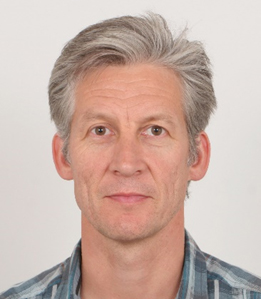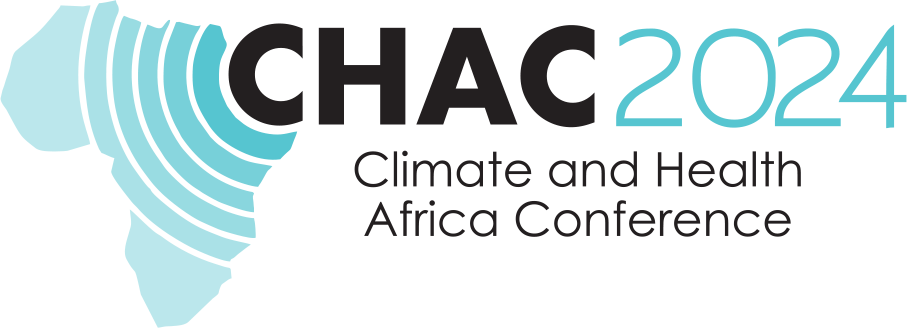Scientific Committee
Overall Scientific Conference Committee

Fortunate Machingura
Fortunate Machingura, PhD, is the chairperson of the 1st Climate and Health Africa Conference, fostering connections between academic and policy interests at the intersection of climate and health in Africa. She is a social anthropologist with a focus on climate health and policy and lectures in the Department of International Public Health at the Liverpool School of Tropical Medicine. Additionally, she leads the Climate, Environment, and Health Department at the Centre for Sexual Health and HIV AIDS Research (CeSHHAR) in Zimbabwe.

Stanley Luchters
Stanley Luchters is the Executive Director at the Centre for Sexual Health and HIV AIDS Research (CeSHHAR) in Zimbabwe, and a Professor in Population Health and Environment at the Liverpool School of Tropical Medicine (LSTM). He has expertise in the design, conduct, management, and analysis of interventions that have a population health impact, especially on sexual and reproductive health.

Modi Mwatsama
Modi is the Head of Capacity & Field Development for Climate & Health at the Wellcome Trust. She is responsible for overseeing Wellcome’s efforts to mobilise a global field of climate and health researchers and policy stakeholders. She has a policy background in nutrition, public health, and non-communicable diseases. Prior to joining Wellcome, she served as the Director of Policy and Global Health at the UK Health Forum. Modi holds a Doctorate in Public Health from the London School of Hygiene and Tropical Medicine.

Henry Mwandumba
Henry is the Director of Malawi Liverpool Wellcome Research Programme in Blantyre, Malawi and Professor of Immunology and Infectious Diseases at Liverpool School of Tropical Medicine, UK. He is Honorary Consultant Physician at Queen Elizabeth Central Hospital and Honorary Professor of Medicine at Kamuzu University of Health Sciences in Blantyre.

Christopher Jack
Christopher is Deputy Director of the Climate System Analysis Group at the University of Cape Town. He has a background in high performance computing and climate modelling but has increasingly been involved in leading transdisciplinary climate research activities including a focus on the intersections of climate and health across Africa.

Vincent Pagiwa
Vincent is a health policy analyst and a public health research fellow at the Okavango Research Institute, University of Botswana. His research is in, but not limited to health policy evaluation and analysis, climate change and health policy nexus, and health politics and governance. He led the founding secretariat of the CHANCE Network. Vincent is also a FAR-Leaf Fellow at Future Africa Institute, University of Pretoria.

Judy Omumbo
Judy is an accomplished climate change and global health expert and professional. She is Head of Programmes at the Science for Africa Foundation, managing bespoke initiatives that address emerging global challenges for Africa. Judy also fosters partnerships within the research ecosystem that generate innovative scientific ideas to address the Africa’s most pressing developmental needs, while championing the foundation’s efforts for funding from early discovery sciences to translation sciences. She is a member of the WMO Research Board and the Adaptation Research Alliance (ARA) steering board.
Scientific Committee Track A (Pathophysiology and biological mechanisms)

Peter von Dadelszen
Peter is an obstetrician-scientist at King’s College London and King’s Health Partners. A New Zealander (and now Canadian), Peter trained clinically and academically in New Zealand, UK, and Canada. Currently, his research focus is on pregnancy hypertension, fetal growth, preterm birth, and stillbirth through a OneHealth lens.

Zulfiqar A. Bhutta
Dr. Zulfiqar A. Bhutta is Co-Director of the SickKids Centre for Global Child Health and Founding Director of the Institute for Global Health and Development at the Aga Khan University. He leads large research teams based in Karachi, Nairobi, and Toronto working on climate, maternal, newborn and child health globally.

Shawnda Morrison
Dr. Morrison is a Senior Research Fellow at the Yong Loo Lin School of Medicine, National University of Singapore and Technical Lead for ‘Cooling Singapore 2.0’ investigating heat-health risk in vulnerable populations (e.g. children, elderly). She is an Executive Board Member of the Active Healthy Kids Global Alliance and Certified Clinical Exercise Physiologist

Fani Kalala
Fani Kalala is an immunologist/hematologist and an Assistant Professor of Medical Immunology at the Medical School of University of Thessaly. Her current research includes the HIGH Horizons project focusing on climate, heat and the health of mothers and children.
Scientific Committee Track B (Environmental exposures and climate-health epidemiology)

Tatenda P Makanga
Tatenda is a Research Scientist specialising in Climate and Health with a background in Geoinformation Science. Leading a team of data scientists at CeSHHAR Zimbabwe, Tatenda focuses on investigating the effects of heat on maternal and newborn outcomes. Additionally, Tatenda holds the positions of Senior Lecturer at the Liverpool School of Tropical Medicine and the Midlands State University in Zimbabwe.

Brad Newsome
Brad serves as a Program Officer at the Fogarty International Center (FIC), part of the U.S. National Institutes of Health (NIH). He oversees an applied global health research portfolio geared toward advancing climate and health research, mobile and digital health, point-of-care technologies, data science and innovation, dissemination and implementation research, and medical/research capacity building efforts. Brad is a biomedical scientist trained at the interface of materials engineering, toxicology, environmental public health, and science policy.

Matthew Chersich
Matthew is a Research Professor in the Wits Planetary Health Division, University of the Witwatersrand, South Africa and Research Fellow at Public Health and Primary Care, School of Medicine, Trinity College, Ireland. His research covers impacts of climate change on health, especially in pregnancy, as well as assessment of adaptation interventions.

Debra Jackson
Professor Debra Jackson is inaugural Takeda Chair in Global Child Health and Co-Director of the MARCH Centre at LSHTM, London. She is also Extraordinary Professor, School of Public Health, University of the Western Cape, South Africa. Her current research includes the HIGH Horizons project focusing on climate, heat and the health of mothers and children.

Shawnda Morrison
Dr. Morrison is a Senior Research Fellow at the Yong Loo Lin School of Medicine, National University of Singapore and Technical Lead for ‘Cooling Singapore 2.0’ investigating heat-health risk in vulnerable populations (e.g. children, elderly). She is an Executive Board Member of the Active Healthy Kids Global Alliance and Certified Clinical Exercise Physiologist
Scientific Committee Track C (Adaptation interventions and building climate resilient health systems)

Veronique Filippi
Veronique is a Professor of Maternal Health and Epidemiology at the London School of Hygiene and Tropical Medicine, UK. She researches the impact of climate change on maternal and newborn health and health workers and the design and evaluation of climate adaptation interventions mostly in Africa within the CHAMNHA, HIGH Horizons and FRM-Matam projects.

Guéladio Cissé
Guéladio Cissé is Adjunct Professor and HEAT Centre project leader at University Peleforo Gon Coulibaly (UPGC) in Korhogo and senior scientist at the Centre Suisse de Recherches Scientifiques (CSRS), in Côte d’Ivoire. He has been the Head of Unit at the Swiss Tropical and Public Health Institute (Swiss TPH) and one IPCC Coordinating Lead Author (CLA) for the health-related chapter in the Sixth Assessment Report (AR6). He is among the WHO roster of experts and trainers on WHO-supported tools and methods for building climate resilient and low carbon sustainable health systems.

Kristie L. Ebi
Kristie has been conducting research on the health risks of climate variability and change for more than 30 years, focusing on estimating current and future health risks of climate change; designing adaptation policies and measures to reduce these risks; and quantifying the health co-benefits of mitigation policies.

Joanna Raven
Joanna is a co- director of the Institute for Resilient Health Systems, reader in health systems research and Deputy Head of Department of International Public Health, Liverpool School of Tropical Medicine. She has over 25 years’ experience of research, training and partnerships in Africa and Asia. Her research has focused on fragile and conflict-affected settings in the areas of: health systems resilience, health workforce, strengthening district-level health management, maternal health, gender equity and scaling-up complex health system interventions.

Euphemia Sibanda
Euphemia is an epidemiologist conducting implementation research on HIV and sexual and reproductive health in Zimbabwe. She is also Reader in Global Health and Epidemiology at Liverpool School of Tropical Medicine (LSTM). Her work includes evaluation of different interventions for improving self-care and community-led approaches for uptake and provision of HIV testing, prevention, and treatment, including health systems strengthening. She is co-PI of a new large grant aimed at strengthening health systems resilience to climate crisis.
Scientific Committee Track D (Mitigation actions and their co-benefits)

Brama Kone
Brama KONE is Technical Officer in charge of Climate Change and Health at the Africa regional office of the World Health Organization (WHO/AFRO). He is by training an Associate Professor in Sanitary Engineering and Environmental Epidemiology of the African and Malagasy Council for Higher Education (CAMES).

Prosper Matondi
Professor Prosper Matondi is the Permanent Secretary for the Ministry of Climate, Environment, and Wildlife in the Government of Zimbabwe. Prior to his current role, he served as the Chief Director for Environment, Climate, and Meteorological Services.

Robert Hughes
Dr Robert Hughes is dedicated to improving child health through research on the impact of urban environments and climate change. Trained in medicine at Bristol University with a BSc in Global Health from UCL and an MPH from Harvard, he has worked across medicine, government, philanthropy and academia. At LSHTM, his research centres on early childhood development and the effects of climate change on child wellbeing. He combines this research with teaching and consultancy to influence climate and health policy and practice.
Scientific Committee Track E (Ethics and climate research equity)

João Monteiro
João is the Chief Editor of Nature Medicine, one of the top medical journals worldwide, covering the entire landscape of medical research. He has spoken about medicine, science, and publishing in many international conferences, and has championed efforts to raise ethical standards and transparency in the reporting of translational and clinical research, to support young investigators and to harness the potential of scientific research to reduce health inequalities globally.

Katherine Littler
Katherine is the Co-Unit Head of Health Ethics & Governance Unit at WHO in Geneva. She focuses on the intersection of ethics, governance, and policy in global health and global health research. She has a broad portfolio, which includes realizing the potential benefits of emerging technologies in different settings; research ethics, with a focus on priority setting and advancing equity and inclusion in research; governance, ethics oversight and clinical trial design; and climate change, health, and ethics.

Moses Chimbari
Moses Chimbari is Pro-Vice Chancellor for Great Zimbabwe University and Honorary Professor of Public Health at University of KwaZulu-Natal where he served as dean of research in 2013-2018. He co-chairs the NIHR funding committee and is president of Ecohealth International. He is a recipient of several research grants on climate change and health.

Ming Yang
Ming is the Senior Editor of Nature Medicine, handling a broad portfolio of research in the areas of global and planetary health. Ming is passionate about championing equity and inclusion in health research practices, having been leading the implementation of the Inclusion and Ethics initiative in global health research within the journal and spoken about equitable research partnerships in international conferences.
